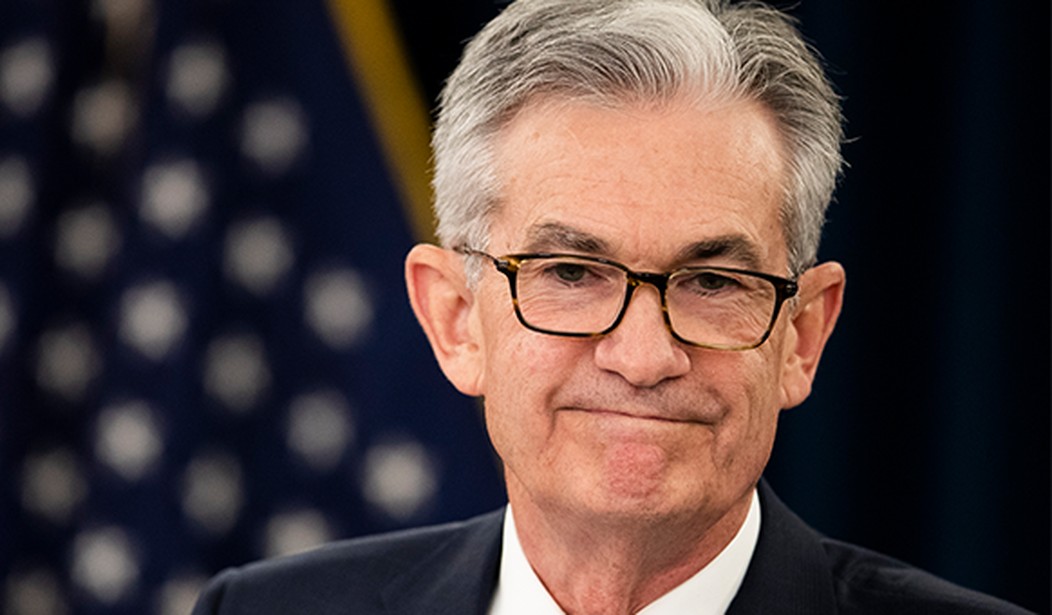To be fair, hardly anyone has bought Joe Biden’s blame-dodging line anyway, but this stings coming from Jerome Powell. Yesterday, the Federal Reserve chair told the Senate Banking Committee what anyone who can read a chart already knows. Inflation hit corrosive levels in the US long before the war in Ukraine began:
Sen. Bill Hagerty (R-Tenn.): “Would you say that the war in Ukraine is the primary driver of inflation in America?”
Fed Chair Powell: “No. Inflation was high before, certainly before the war in Ukraine broke out.” pic.twitter.com/xhPeO0NYYE
— Breaking911 (@Breaking911) June 22, 2022
Sen. Bill Hagerty (R-Tenn.) elicited the remark from Powell at a committee hearing after laying out the fact that inflation grew higher over the course of 2021.
“I realize there are a number of factors that play a role in those historic inflation that we’re experiencing — supply chain disruptions, regulations that constrain supply, we’ve got rising inflation expectations and excessive fiscal spending, but the problem hasn’t sprung out of nowhere,” Hagerty said.
“In January of 2021, inflation was at 1.4%. By December of 2021, it had risen to 7% — a fivefold increase. Now, since the war in Ukraine began in late February, the rate of inflation has risen incrementally another 1.6% to a current level of 8.6%. So again, from 7% to 8.6%.”
Hagerty asked Powell, “Given how inflation has escalated over the past 18 months, would you say that the war in Ukraine is the primary driver of inflation in America?”
“No, inflation was high before — certainly before the war in Ukraine broke out,” Powell said.
This doesn’t require a degree in economics to figure out. All it takes is a calendar. Here’s the official chart from the Bureau of Labor Statistics on the year-on-year consumer price index (CPI) changes over the last twenty years, which shows that the rapid increase came in 2021, not in or after February 2022:

Or if you prefer a more telescoped view of the trend, here’s the BLS chart for year-on-year CPI changes for the past year:

Note well that the X-axis starts at 3% annual CPI inflation, which is above the 2% target rate. That’s because both April and May 2021 were above those targets, as higher-level inflation began almost immediately after Biden’s $1.9 trillion American Rescue Plan passed in March 2021. CPI inflation really began escalating in October 2021, five months before the invasion. Even most of the gas-price inflation took place before then too, as the EIA data shows:

In other words, the “Putin price hike” has been a shabby lie all along. Why haven’t media outlets (other than Fox, natch) bothered to challenge it? That’s mainly a rhetorical question, of course.
That’s not all Powell had to say about the economy yesterday. He also warned that the Federal Reserve’s necessary actions to get inflation under control would make a so-called soft landing for the US economy “very challenging.” Get ready for a recession, in other words:
“Inflation has obviously surprised to the upside over the past year, and further surprises could be in store. We therefore will need to be nimble in responding to incoming data and the evolving outlook,” said Powell, who appears before the House Financial Services Committee on Thursday. …
“The American economy is very strong and well positioned to handle tighter monetary policy,” Powell said in his opening remarks. He later said that the Fed is “not trying to provoke and do not think we will need to provoke a recession.”
The Fed chief also said that he did not see the likelihood of a recession as particularly elevated right now, but conceded that it was “certainly a possibility,” noting that recent events have made it harder for the Fed to lower inflation while sustaining a strong labor market.
A soft landing “is our goal. It is going to be very challenging. It has been made significantly more challenging by the events of the last few months — thinking there of the war and of commodities prices and further problems with supply chains.”
“The worry about recession risk is a little more palpable,” said Derek Tang, an economist at LH Meyer, a Washington-based policy-analysis firm. Tang said the message that the Fed isn’t trying to cause a recession — though one could result as it continues to raise rates — “is a very difficult tightrope to walk.”
A recession is almost certainly unavoidable at this point. Consumer sentiment and spending have already tailed off, and today brought news of an increase in the trade deficit of 29.6% in Q1, higher than previously estimated. That could force a negative adjustment to GDP in the final Q1 estimate to be released next week, and it might also hint at trade-deficit issues in Q2 that could push us into two successive negative-GDP quarters — the traditional definition of a recession. Get ready for the White House’s inevitable “Putin’s recession” spin, which will be just as dishonest as Biden’s “Putin’s Price Hike” line.









Join the conversation as a VIP Member